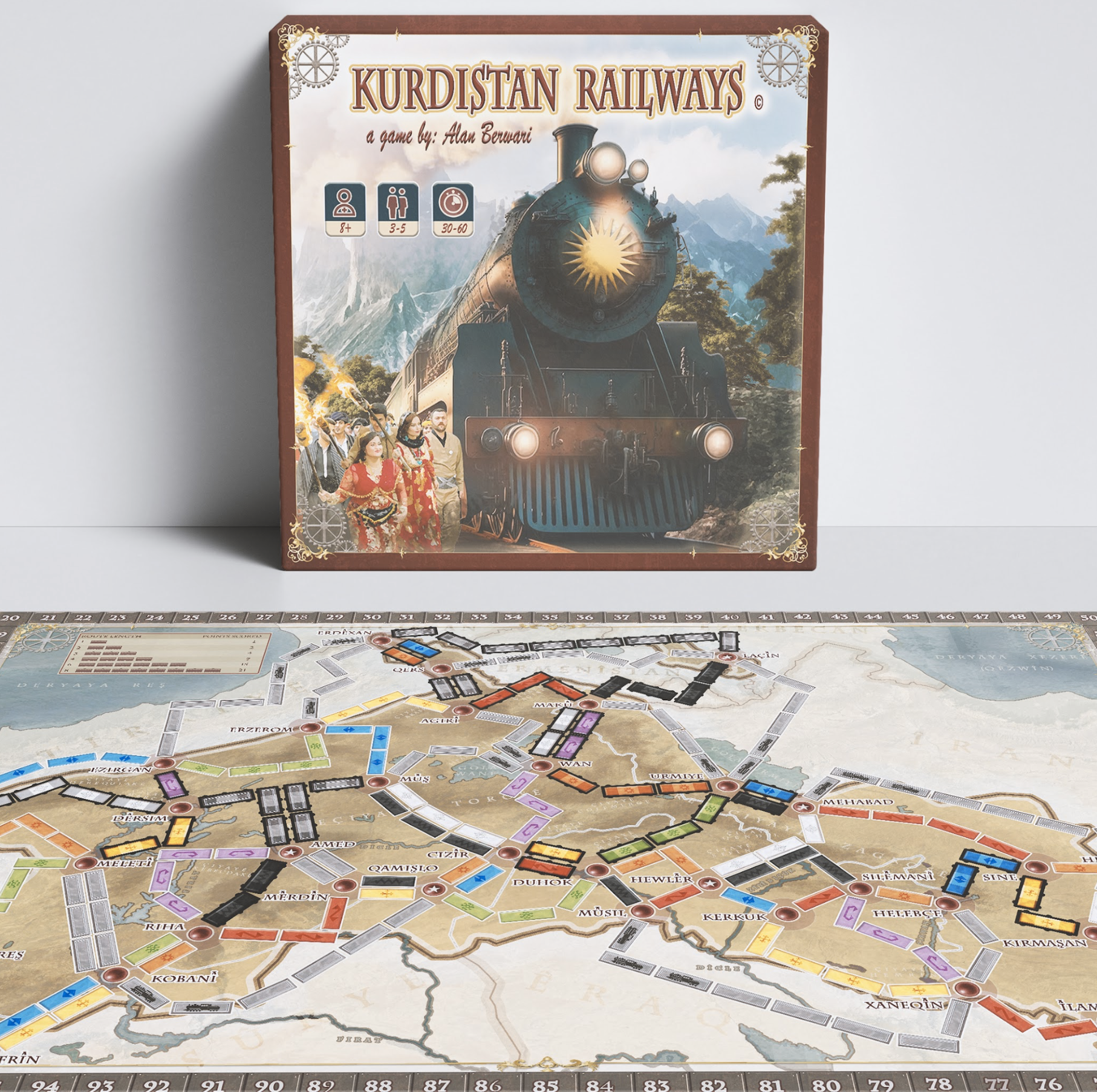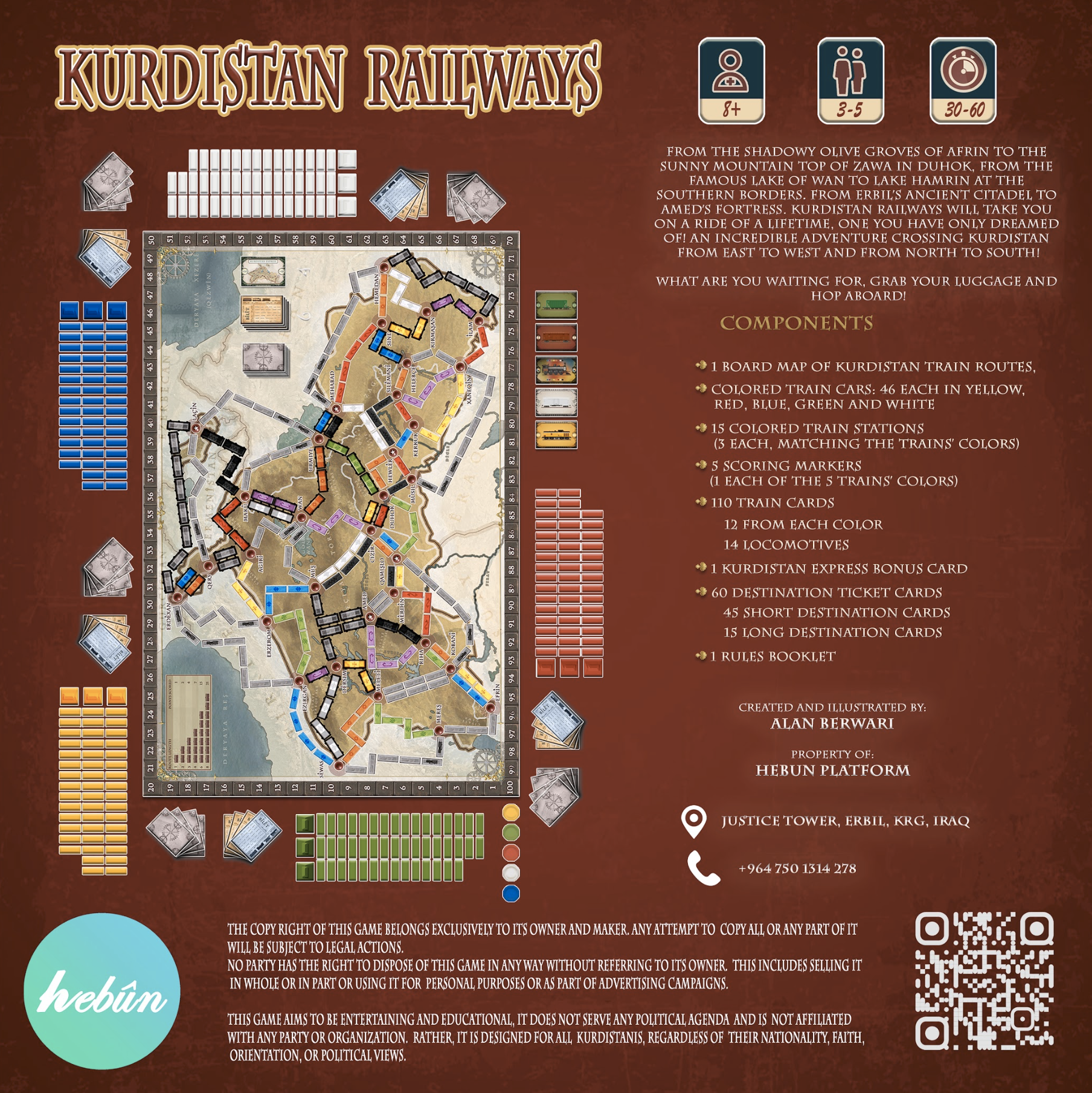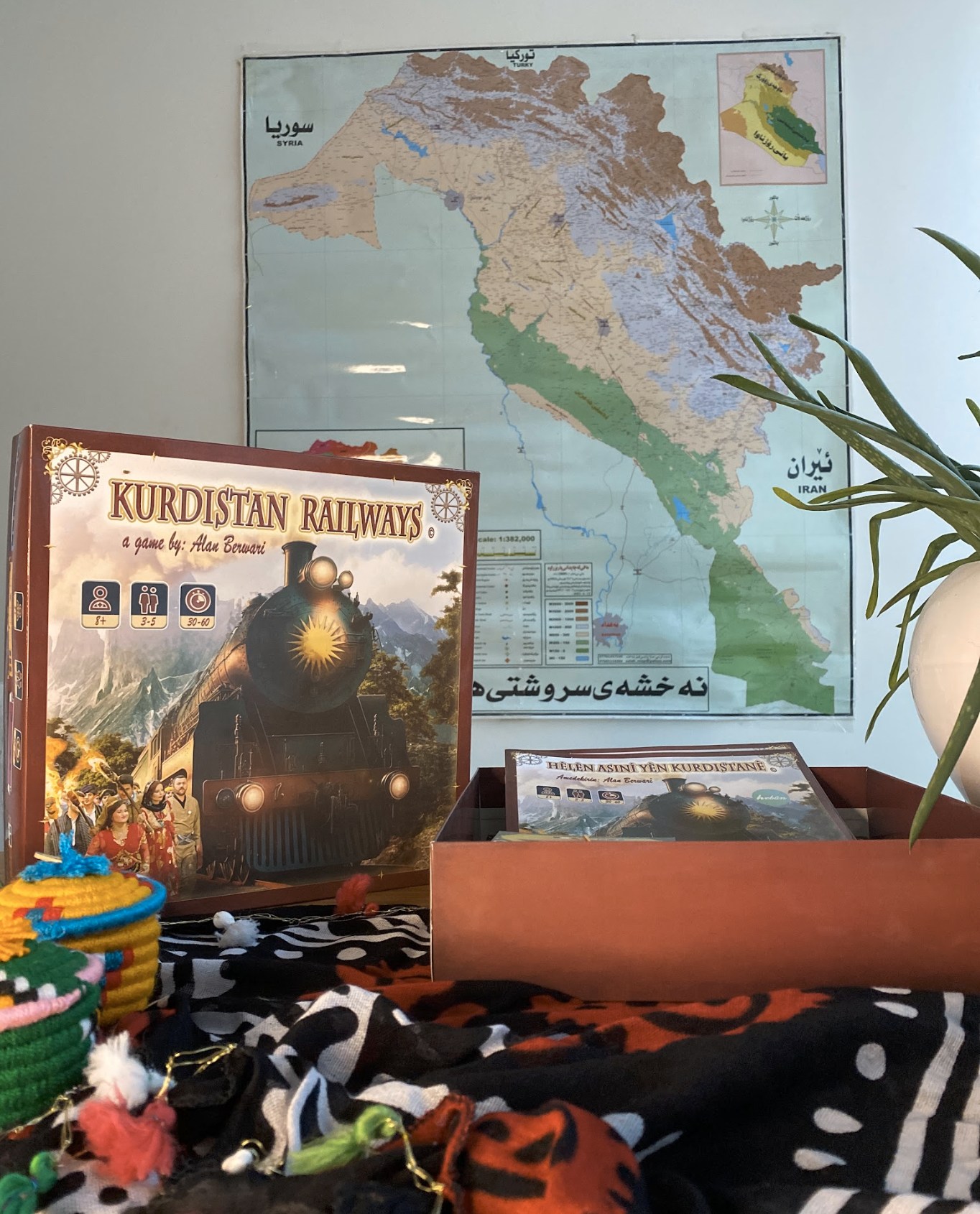Kurdistan Railways is a five-player strategy board game similar to Monopoly that was created by Alan Salah, a young Kurdish entrepreneur.
Featuring a map of Kurdistan with the names of all its major cities, the game’s purpose is to educate the younger generation and foreigners about Kurdistan. The new generation, due to their different lifestyle, may not know much about their nation and country and conveying such information through games can be more engaging. The game can also provide valuable information and make it easy for foreigners to learn about Kurdistan.
While many countries have their own versions of such games, the story behind Kurdistan Railways is unique.

Born in Aleppo, Syria in 1988, Salah lived in Damascus and is the son of a Kurdish writer and politician. “My father is from Barwari Bala in the Kurdistan Region, and my mother is from Afrin in Western Kurdistan (northeastern Syria). But my family’s roots are from Jalawla in the Diyala Governorate of the Kurdistan Region. My grandfather was registered in Jalawla during the 1957 census while serving as part of the Royal Iraqi Army, and so our identity card lists us as from Jalawla. Later, my father went to Mosul to study but was asked to become a Ba’athist to continue, but he refused, instead joining the peshmerga forces in Behdinan (aka Badinan). He went to Iran and then to Syria, where he married Salah’s mother. “We stayed in Syria until the fall of Saddam Hussein before returning to the Kurdistan Region,” Salah recounted.
While in Syria, he graduated as an architectural engineer in Damascus. He now runs a design company in Erbil. Often, the most difficult question he faces is where he is from. “This identity crisis drives my interest in working on Kurdistan’s identity, as it encompasses the details of my life and succinctly answers this difficult question.”

Trains, games, and strategy
Salah’s love of board games as a child drove him to create Kurdistan Railways. “I often thought there should be such a game for Kurdistan because it expands the brain and provides learning opportunities. I have several foreign friends who introduced me to a similar game, with each country having its own version. This inspired me to create one for Kurdistan,” he related.
Salah’s childhood love for riding trains also proved inspirational. “In Syria, it took four hours to reach Aleppo by bus from Damascus, but seven hours by train. I always traveled by train for the joy it brought. I dreamed of one day taking a train from Afrin to Zakho or other parts of Kurdistan, bringing Afrin’s olives to my uncles in Duhok and the famous apples of Badinan to Afrin,” he said.

Kurdistan Railways imagines a railway connecting Kurdistan’s cities and helps players learn about the geographical boundaries that are demographically considered Kurdish territory. “When I saw Monopoly and decided to create a Kurdish version, I thought this was the best way to fulfill my dream of traveling all over Kurdistan by train,” he explained.
While some may dispute the accuracy of the game’s map, it is inspired by a map published in 2012 by the Institute for Kurdish Studies in Paris, based on research and historical sources. The map does not show the political boundaries of a proposed state and does not aim to promote any separatist ideas. It is purely for educational and entertainment purposes.
Creating the game took about three years, although producing and distributing it took six months. Salah started with the map, knowing that even a small mistake could ruin the project.
Anyone over the age of eight can play and understand the game. As a strategy game for five players, it requires a lot of thinking. Players win by completing all their tickets, creating the longest path, and blocking their opponents. Playing time ranges from 30 to 90 minutes, depending on the players’ skill and experience, with more experienced players often finishing more quickly.
The game includes two types of cards: long-range and short-range, with train cards indicating from which city the player is traveling. The railroads are color-coded, and the cards feature iconic Kurdish elements, such as traditional clothing patterns and symbols of Kurdish culture.

Building “existence”
Kurdistan Railways is the first Kurdish board game registered with the Kurdistan Regional Government Ministry of Culture and Youth, but Salah has pledged that it will not be used for political purposes. The game package clearly states that it is not affiliated with any political party and is solely for learning and entertainment.
Today, young people are enjoying the game in some cafeterias in Erbil, and it is available in most libraries. Half of Salah’s customers are Kurds, and the other half are foreigners living in Kurdistan. The game is also sold in Germany, France, Switzerland, and the United States.
Salah mentioned that Kurds born in other countries benefit from the game, as it helps them learn about their identity and homeland. The game is written in Kurdish using Latin characters, making it accessible to both Kurds and non-Kurds. One of his goals was to present Kurdistan’s identity to the world, detached from politics and war.

For first-time buyers, there are tutorial booklets in both Kurdish and English, and a QR code on the box provides access to an online tutorial.
Feedback from those who have played the game has been very positive, especially from foreigners who have learned the Kurdish Latin alphabet, seen the map of Kurdistan, and learned the names of Kurdish cities by playing the game.
This game is part of Salah’s larger project called habun (existence), which includes additional game projects.
“As Kurds, we face existential challenges, so I want my projects to reflect our identity. Besides Kurdistan Railways, I am working on four other games. My second project is a paper game called Legend of Newroz, but I am seeking a sponsor as it requires a significant budget to create. I prepared the first project at my own expense, printing 500 copies,” he said.
Mohammad Dargalayi is a journalist and photographer with 14 years of experience. He is a member of IFJ Global.

